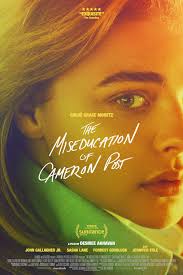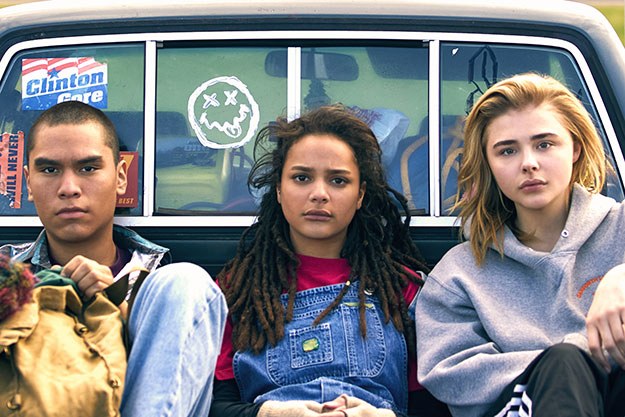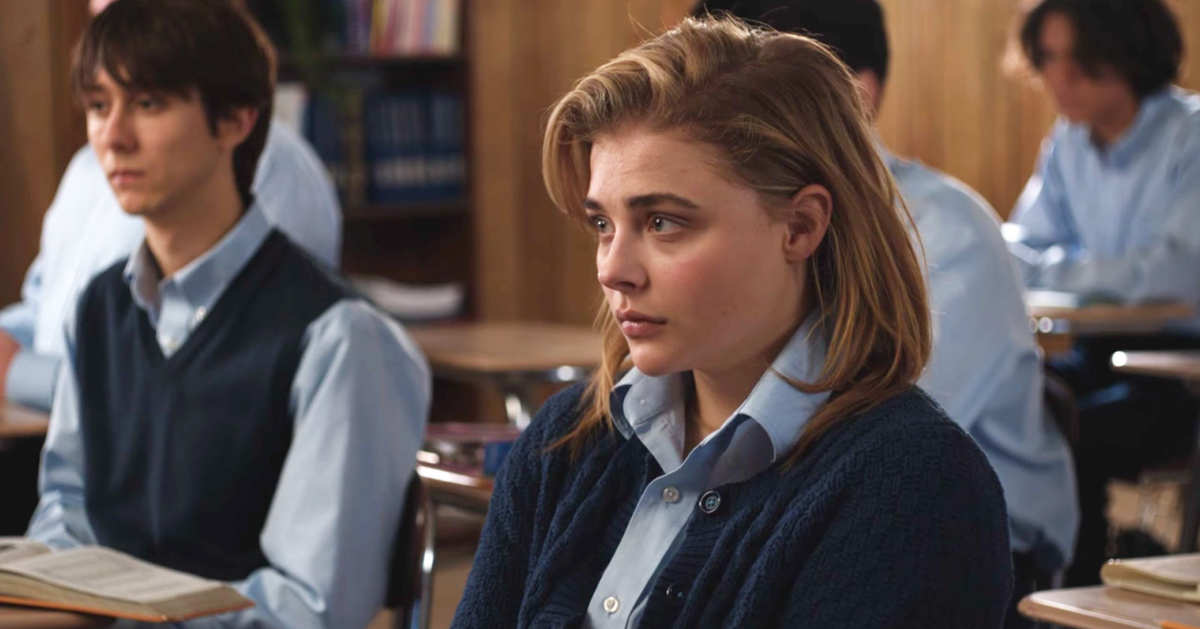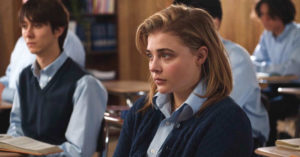Interview: The Miseducation of Cameron Post’s Chloe Grace Moretz, Desiree Akhavan, and Mathew Shurka
Posted on August 7, 2018 at 3:42 pm

I always think that one of the greatest challenges an actor can have is a part like this one where your character is so much an observer, with no big speeches.
Chloe Grace Moretz: What’s beautiful about the film is that it really is an ensemble piece. It’s called “The Miseducation of Cameron Post” but I walk through it with you guys, perceiving and understanding and taking in and comprehending this space that I’ve been thrust into. We shot the movie chronologically. We only had 23 days to shoot the movie. It was wonderful because we just walked through each beat. Because we didn’t have much rehearsal time, there wasn’t much to do other than feel and hear and listen and perceive.
Because my character didn’t have a lot of lines, all this stuff is happening to her and around her and she’s having all these projections put on her about of what she is and what her problems are. And all she says is, “I don’t think so.” It all happens in her head and it was really fun for me to play with that and depict it all through my face and my eyes. It’s what I like doing best as an actor, ever since I was a little girl. It’s always been something I enjoy, showing context and subtext in my head and having it pushed it out through my eyes, not having to vocalize it. A lot of times in life, when you’re faced with sadness and depression and anger you can’t really formulate words for that. When someone is looking at you and telling you everything you’re doing is incorrect, sometimes the best you can do is say, “I don’t think so.” You internalize that.
Desiree Akhavan: That was the character. Someone who wasn’t that talkative. An introverted, athletic lesbian, an ode to every woman I’ve ever loved. I was building a type. I’ve been asked if that was something that changed specifically through casting Chloe, because she has a strength for communicating without words, but it was just a happy marriage, when the character meets the right actor.
Mathew Shurka: It was incredibly powerful to see that in Chloe. It is so hard to turn conversion therapy into a film. All the subtleties are really clear in the film. My favorite part is when she just walks into the conversion therapy center and Reverend Rick is playing the guitar. There’s a shot of Chloe’s face. There’s doubt, there’s fear, and “where am I” and it’s every teenager. As a survivor, it read really clear to me, what was going on with her character.
We’d like to believe we are wiser now than in 1993, when this movie takes place, but how many states still allow conversion therapy?
Mathew Shurka: Only 14 states have banned conversion therapy for minors, which means that some form of it is still permitted in 36. But it’s legal for adults in all 50 states. A majority of conversion therapy programs are religion-based, but not all. This movie shows both, an actual therapist and a pastor. In reality, that’s how it goes. All of my treatment was conducted by licensed professionals. My father, who was the one who was really adamant about me going into conversion therapy did his due diligence and he wanted someone who had gone through the training of a therapist to conduct this.
They’re fighting these bills so a lot more are getting licensed as therapists to have more credibility, because they are fighting these bills. There are licensed and there are unlicensed and then the overlap who are both, pastors and licensed therapists. We say you have to choose. In the states where we passed those bills, people say, “What if there’s a pastor who wants to conduct conversion therapy?” and we say, “You have to honor and obey the terms of your therapist license.” You have to choose. You want to be a pastor and have those rights, fine, but if you’re acting as a therapist you have to honor that license.
Because these issues are still so present, did you ever think of setting the film in the present instead of in 1993?
Desiree Akhavan: We thought about it because it would have been cheaper. But no, it was always really important that they were as isolated as possible. For the dramatic stakes to be as high as possible, Cameron could not even know about other gay kids, let along see them on Instagram or reach out and ask for help. I didn’t want there to be a world outside of what they knew around them. I wanted to be loyal to the book but I also didn’t want to deal with technology and the whole host of changes that would bring to their lifestyle and personalities and their identity and their self-expression. The way kids live right now is very different from the way they lived in 1993 and it was important to keep it that way. But it is a very relevant film and when I began this process I didn’t realize how relevant it would become through the course of production.



